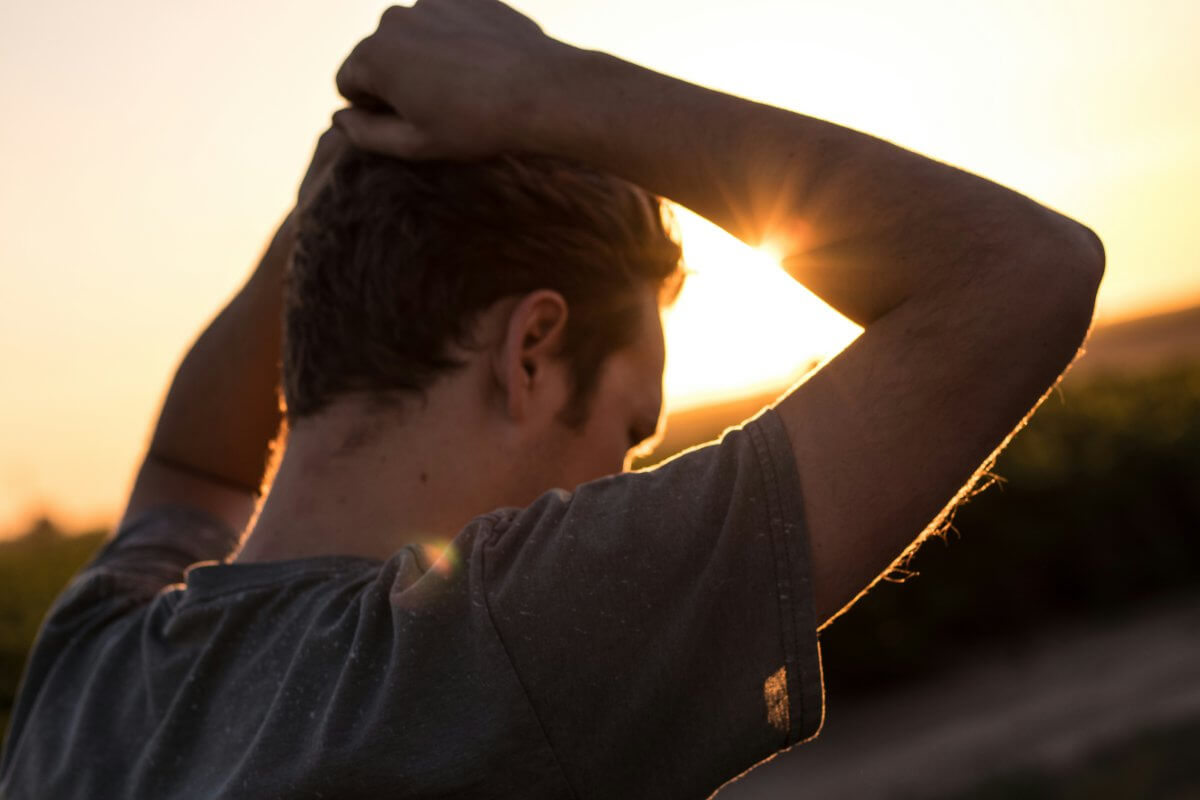Medical cannabis for post-traumatic stress disorder (PTSD)

Medical cannabis for PTSD
Modern society is faced with a variety of stressors, be it pandemics, wars, natural disasters or individual traumatic experiences, which in some cases can lead to post-traumatic stress disorder. Due to the growing awareness of mental health issues, people are becoming more aware of their experiences and symptoms and are seeking professional help.
Post-traumatic stress disorder (PTSD)
Post-traumatic stress disorder (PTSD) is a mental illness that can occur as a result of trauma caused by stressful events or particularly threatening situations. War, sexual abuse or even serious accidents play a major role here (1).
If the event is not dealt with and processed, a post-traumatic stress disorder can develop from the (co-)experience of such a trauma – in other words, the stressful memories return and are “lived through” again and again. Intense anxiety, flashbacks and sleep disorders can dominate the daily lives of those affected (1).
PTSD can often be treated well with cognitive behavioral therapy or the administration of medication (usually psychotropic drugs: antidepressants) (1). In recent years, the use of medicinal cannabis has also emerged as a possible treatment option.
Current study data
A pilot study from Florida in 2023 shows that the severity of PTSD symptoms in the study participants improved significantly after 30 and 70-day follow-up examinations due to the use of medicinal cannabis. In particular, a statistically significant reduction in nightmares was observed, as well as longer sleep duration, better sleep quality and higher sleep efficiency. General mental health improved significantly (2).
The results of the Florida study underscore the potential of medical cannabis to improve outcomes in patients with PTSD, particularly those with sleep disorders that do not respond to currently available treatments (2).
Cannabinoids
THC, the psychoactive component of cannabis, may help reduce anxiety and modulate emotional responses to traumatic memories. CBD, on the other hand, the non-psychoactive part of cannabis, shows anti-inflammatory and anti-anxiety properties, which could contribute to a possible improvement of sleep disorders and stress symptoms.
News of the world – Ukraine
Already last year, activists and advocates of medical cannabis in Ukraine pleaded for access to this treatment method, especially with the aim of helping millions of people, including soldiers wounded in the Ukrainian war. In December last year, the Ukrainian parliament passed a first draft law on the legalization of medical cannabis.
The aim of legalization is to help cancer patients in particular, but also people with PTSD, and to offer an additional treatment therapy for the respective symptoms.
According to Mariia Mezentseva, who spoke out in favour of legalization in parliament, medicinal cannabis is needed by up to 6 million Ukrainians, including civilians with post-traumatic stress disorder (PTSD) and wounded soldiers (3).
Legalization, which is expected to take place in the second half of 2024, is to take place under the strictest conditions. “Only approved facilities with the necessary licenses and GMP certificates will be allowed to grow cannabis. For security reasons, there will be constant video surveillance by the national police. Each plant will be given a unique code so that its path to the patient can be precisely tracked. The cannabis-based medicines will only be available with an electronic prescription. This would be issued by a doctor according to the patient’s condition.” (3). Recreational use remains illegal by law.
References:
1 – AOK – Die Gesundheitskasse. (2023). Was ist eine Posttraumatische Belastungsstörung? https://www.aok.de/pk/magazin/koerper-psyche/psychologie/ptbs-ursachen-symptome-und-behandlung/
2 – Vaddiparti, K., et al. (2023). Improved Post-Traumatic Stress Disorder Symptoms and Related Sleep Disturbances after Initiation of Medical Marijuana Use: Evidence from a Prospective Single Arm Pilot Study. Medical cannabis and cannabinoids, 6(1), 160–169. https://doi.org/10.1159/000534710
3 – Nagel, T. (2023). Medizinisches Cannabis gegen Kriegs-Folgen: Ukraine beschließt Legalisierung. Frankfurter Rundschau. https://www.fr.de/politik/kritik-medizinisches-cannabis-ukraine-krieg-folgen-legalisierung-posttraumatische-belastungsstoerung-92742015.html


